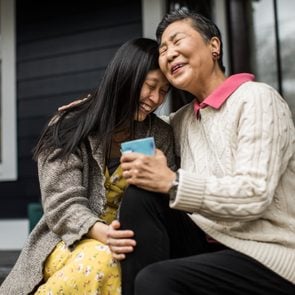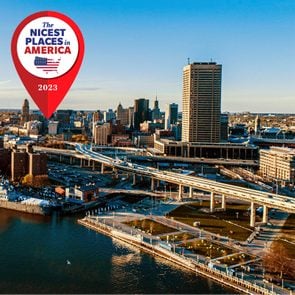The tiny haven of Horseshoe Beach prides itself on its "old Florida" spirit—the very spirit that energized residents to pick up the pieces after a disaster

A Hurricane Devastated One of Florida’s Final Frontiers—but It Won’t Go Down Without a Fight

When Category 3 Hurricane Idalia, complete with 125-mph winds, came pounding across the Gulf of Mexico in August 2023, Horseshoe Beach, Florida, took a direct hit.
An idyllic enclave of some 200 permanent residents in the state’s sparsely populated Big Bend region, the town prides itself on its old-fashioned vibe, neighborly spirit and resistance to commercialization.
“They paved the roads back about 15 years ago,” says Mayor Jeff Williams, “and a lot of people in town raised Cain about it.” Horseshoe Beach had no cell service or internet access until 2014.
Now, one of Florida’s final frontiers faced an existential threat. Idalia’s storm surge damaged or destroyed every building that wasn’t constructed on pilings. Forty homes were washed away completely. Devastated residents returned to town later the same day, shell-shocked and numb. Then they started cleaning up the mess.
A community disaster called for a community response. People who owned second homes in Horseshoe Beach handed the keys to their now-homeless neighbors to stay as long as they needed. Residents brought in their heavy equipment and chain saws to open the roadways and plow away debris, clearing neighbors’ property without a thought of payment. When contractors from inland showed up passing around business cards, Williams says, the locals “just about run them out of town. Because everybody’s friends and families were doing it for nothing.” And this is just part of the reason Reader’s Digest named Horseshoe Beach one of 2024’s Nicest Places in America.
Get Reader’s Digest’s Read Up newsletter for more inspiring stories, humor, cleaning, travel, tech and fun facts all week long.
Leading the charge to help
Hours after the storm moved on, 25-year-old Lacey Coe, nearly 6 months pregnant and with three little ones under 5, realized that all these neighbors helping neighbors were going to need to eat. So she drove 40 miles to the nearest superstore, loaded up on groceries, returned to her undamaged home and, as she puts it, “put on my big-girl britches and started cooking.”
The next day, she did the same thing. And the next. And the next.
The area beneath her elevated house, where she’d set up a deluxe grill donated by a neighbor, became a gathering place for whoever was hungry, three meals a day, drawing between 40 and 100 people per meal. She served pork chops, grilled chicken, seafood boils, salmon, ribs, rice and gravy, green beans, potatoes, salads and more. She worked from 6 a.m. until 11 p.m. and never charged a dime.
“She became the captain of the ship,” says resident Bill Ordner, 59, who had never spoken with Coe before the storm but grew close to her family when he made it his business to help her however he could: prepping meals, cleaning up, carrying ice. One day, he recalls, she accidentally laid a hot frying pan on her thigh. “She put some burn gel on it and went right back to cooking,” he says.

To Coe, this brand of kindness was simply in line with her Horseshoe Beach upbringing. In this town, she says, “when you find out somebody don’t have what they need, you go do it, you get it, and you make sure they have it.”
Eventually, someone put out a donation jar, and Coe manned the grill for three months. Then she had her baby and started back up again.
Maintaining that strong sense of community
Horseshoe Beach’s future is uncertain. Modern building codes require homes to be elevated, which can double construction costs. Many are putting up pole barns and parking their RVs on the concrete slabs where their houses once sat. Some will likely sell their properties to out-of-towners who have the means to build fancy homes and might not share the community’s long-held values.
Mayor Williams agrees that the actions of Coe and her neighbors align perfectly with the enduring spirit of Horseshoe Beach.
“Someone has a problem with their shrimp boat, the next day you see 12 or 14 neighbors out there helping him pull the engine so he can get back to work,” he says. “Horseshoe Beach will be back as good or better than we were. But we don’t want to change.”
Why trust us
For more than 100 years, Reader’s Digest has been known for its heartwarming true stories and focus on community. In 2016, we launched the Nicest Places in America, an annual contest that honors kind, inspiring people making a difference in their hometowns. Readers send in nominations, and Reader’s Digest’s editorial team vets the entries and whittles them down with the help of a panel of judges. This year, the judges included Today’s Al Roker, Tuesdays with Morrie author Mitch Albom, author and podcast host Mónica Guzmán, award-winning journalist and author Steve Petrow, Reader’s Digest CEO Bonnie Kintzer, and Craig Elston, a barber who helped Buffalo, New York, earn the title of Nicest Place in America in 2023. We are committed to producing high-quality content by writers with expertise and experience in their field in consultation with relevant, qualified experts. Read more about our team, our contributors and our editorial policies.


